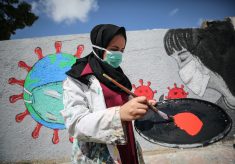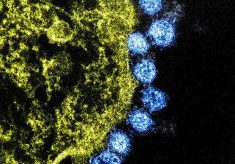At the end of February, the Chinese authorities took action in making the necessary legislative steps to ban wildlife trade and consumption permanently. The Comprehensively Prohibiting the Illegal Trade of Wild Animals, Eliminating the Bad Habits of Wild Animal Consumption, and Protecting the Health and Safety of the People act bans all illegal trade and eating of non-aquatic wild animals. It is the result of the ongoing Coronavirus epidemic in the country – and worldwide – and represents the first measure put into action to prevent the emergence and spread of new zoonotic diseases in the future, as announced by the National People’s Congress.
This decision bucks the Chinese government trend in the past few years to encourage wildlife domestication as a source of profit and poverty alleviation in rural areas. In 2017, a report released by the Chinese Academy of Engineering showed that the national wildlife farming industry reached $74 billion to the point that, in certain cases, wildlife consumption is considered a luxury item only for the richest.
In the past weeks, almost 20.000 wildlife farms have been shut down across China. This may deteriorate further the Chinese economy which is already under pressure due to the effects of the epidemic. According to the World Economic Forum, economic growth in the country is expected to slow to 4,5% in the first part of 2020. It means 2,5% less than in 2019 and 4,5% less than in 2017.
The government decision hits the vast majority of the state-licensed farms and hopefully the multitude of non-state-licensed farms that are less traceable and are involved in wildlife illegal trafficking. Since the 26th of January, when it was issued a temporary ban on wildlife consumption, the Chinese authorities confiscated 38.000 wild animals, 5.174 pounds of wildlife products and punished almost 700 criminals linked to illicit activities. However, it is likely that these measures will not be effective on the long-term if also domestic cultural aspects are not taken properly into consideration.
Corruption has been found to be at the centre of the problem with too many officials turning a blind eye during the security checks at ports and airports. Yet, the fact that many wildlife endangered species are ingredients for the traditional Chinese medicine (TCM) (although pharmaceuticals that have similar properties are widely available) does not help to tackle illegal trafficking. Since the epidemic outbreak, many supporters of the TMC have been selling treatments to fight the virus, including the ones made of wildlife animals (for instance, snake oil to prevent pneumonia).
As China drives the demand of wildlife trafficking, the ban could affect illegal trade globally. By now, wildlife trafficking revenues are estimated between $7 and $23 billion per year; the fourth most lucrative criminal activities after drugs, humans and arms trading.
Along with the experts, in the next years, 75% of the diseases will originate from animals. Therefore, it is of the extreme importance to build up a system in which any trade related to animals is traceable and compliant with international health standards to protect humans and to respect our ecosystem.















